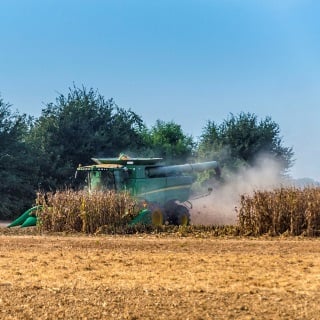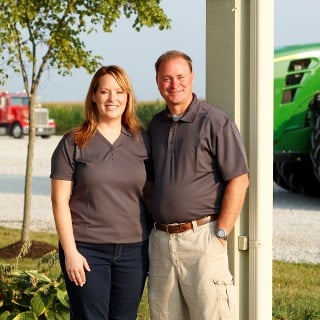In the late 1970s, customer-owner Joe noticed a neighbor was testing out a new approach to farming: planting without tilling the land. His interest was piqued.
The fifth-generation grain farmer watched closely over the next few years as his neighbor continued to successfully grow crops without plowing. In 1982, Joe tested the no-till method at Beam Springs, a family-owned corn and soybean operation nestled in a lush southwestern Ohio valley.
“We certainly felt like it was promising enough that it was worth continuing,” Joe shared. “By 1985, we were 100 percent no-till.”
With minimal disturbance to the land and to the organisms living in the soil, no-till plowing results in a host of environmental benefits, such as reduced erosion, increased water filtration, nutrient retention and healthier soil. It’s now been 35 years since the family fully adopted the no-till technique and they are reaping the benefits. Number one on their list being that virtually no soil erosion on their farm and previously degraded soils have largely been restored.
“For me, it’s exciting to get up and see the progress we’re making regenerating our soils,” says Mike, who runs the farm alongside his father, Joe. Soil is their biggest resource, he added, and it’s much easier to lose than it is to rebuild.
“That’s a big deal to me,” Mike said. “I don’t take that lightly.”
The family is committed to protecting and even enhancing the land on which their family has proudly farmed for five generations.





